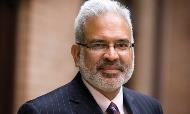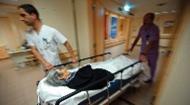The suicide of a healthcare worker while they are under investigation should be included on the next list of never events, says Rajan Madhok

“Never events” are very serious, largely preventable patient safety incidents that should not occur if the relevant preventive measures have been put in place.
They include operating on the wrong patient or wrong part of the body and leaving objects such as swabs or needles in patients after surgery.
In January 2012, the Department of Health published an expanded list of 25 events and more recently it has issued the updated never events policy framework to address areas of uncertainty and to provide greater clarity and the recommended response to them.
The document also contains data on the number and types of never event reported in the last two years, revealing that 326 never events were reported to strategic health authorities in 2011-12.
This shows that there is a long way to go before the incidence of never events is brought down to zero as the policy aspires, and before patients and their carers can feel safe when receiving care.
Second victim phenomenon
As someone who promoted the concept of never events in the NHS, I am pleased to see the revised framework issued by the chief nursing officer Jane Cummings and NHS medical director Sir Bruce Keogh, and commend it to all professionals and managers. However, I have one suggestion.
‘Many of my colleagues certainly feel they are being attacked and feel badly let down by the NHS’
Many enquiries of serious clinical incidents show multifaceted problems, with systems failure rather than just an individual professional contributing to patient harm. Moreover, it is not just patients and their carers who suffer from such failures.
There has been a growing interest and recognition that healthcare workers are also often affected by medical errors as secondary victims. Professor Albert Wu, who has raised awareness of the “second victim phenomenon”, talks about significant functional impairment, with some healthcare workers leaving their profession and a few even taking their own lives because of the experience.
There is very little known about the extent of the problem, although figures obtained via a Freedom of Information request from the General Medical Council show 92 doctors died in 2004-2012 while they were being investigated, and at least three of those killed themselves.

Protect the workforce
My suggestion is that we add another never event to the list: suicide of a healthcare worker while undergoing investigation for an alleged serious clinical incident.
I have no information about how other healthcare workers (apart from doctors) fare in this regard, but given the common underlying values of all clinical professions I would expect this must affect them equally, hence the suggestion to include all healthcare workers.
At September’s General Medical Council conference Being Fair, Royal College of GPs chair Clare Gerada raised the notion of declaring a doctor’s death while under investigation by the GMC as a never event. Subsequently, the British Association of Physicians of Indian Origin annual conference in early November passed a motion to lobby for this.
Badly let down
As with other never events, further work will be needed to clarify detail in terms of scope and how to implement this event, including what support can or should be made available to healthcare workers while under investigation. Hopefully this can be done in time for the next revision of the never events list for 2013-14.
The learning from reviews of these never events should provide useful information on not only how to avoid tragic loss of life, but also about human factors generally that have a bearing on clinical incidents and system safety.
William Carlos Williams, the American poet and physician, described a doctor as “one upon whom we set our hopes when ill and our dogs when well”. Many of my colleagues certainly feel they are being attacked and feel badly let down by the NHS.
This new never event will go some way towards restoring their faith in the NHS and ultimately it will go a long way towards improving patient safety.
Rajan Madhok is medical director at Kleyn Healthcare and chair of the British Association of Physicians of Indian Origin


























4 Readers' comments